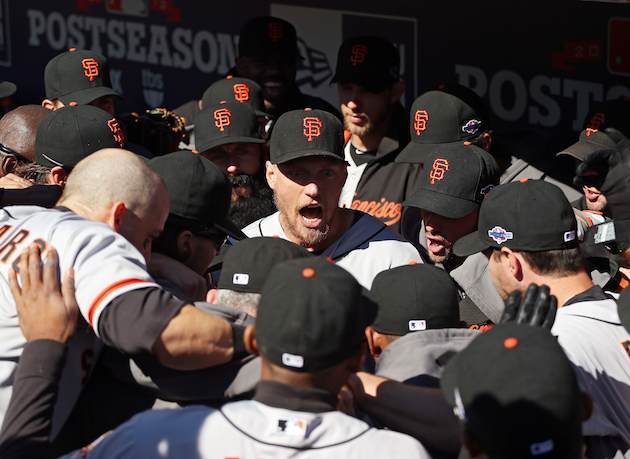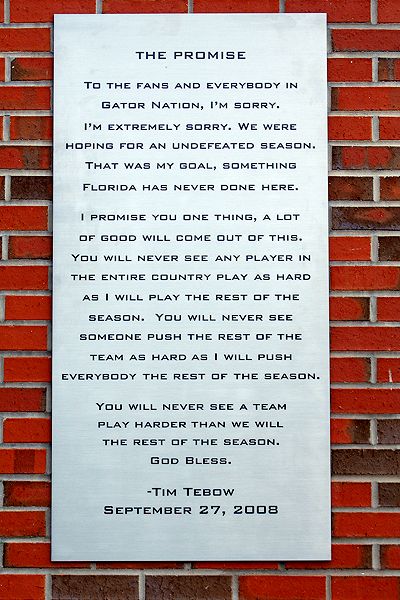 We have an inflamed desire in our society nowadays to be the
next big thing. We want to be talked
about, to be applauded, to become renowned.
Simply put, we want to be buzzworthy.
This is true in the fraternity world as well, with national
organizations, associations, campuses, and chapters trying to conceive of the
next big idea that will put them on the map.
We have an inflamed desire in our society nowadays to be the
next big thing. We want to be talked
about, to be applauded, to become renowned.
Simply put, we want to be buzzworthy.
This is true in the fraternity world as well, with national
organizations, associations, campuses, and chapters trying to conceive of the
next big idea that will put them on the map.
This is often a good thing, because it can create competition,
which can yield creativity. Competition can
fuel a marketplace of innovation in how to improve the fraternity
experience. There are chapter meetings, board
rooms and staff meetings throughout the country in which groups are trying to
figure out how to out-do and out-perform their peers. To be considered the next big thing.
They have a 4-year
member development plan? Well, we need
one of those! They had their convention
where? Well let’s go here instead. They
took a group of students to a different country? Well, our next leadership conference will be
on the moon!
Apart from competition, or trying to keep up with the Joneses, groups will actively try to develop to brand new shiny initiatives
simply to become the envy of the industry.
That’s just the nature of a crowded marketplace in which it’s difficult
to stand out. And again, this is not a
bad thing, and can have great benefits.
But I still witness some of these projects and programs, and
wonder if they are purpose-driven, or publicity-driven? It’s the macro version of the student who
does service in a developing country. Are they there for the service or just to get a new Facebook cover photo?
Sometimes, organizations look like they have A.D.D. They are pushing out a different idea or
approach each month, each quarter, each year.
They can’t seem to focus. Jeff
Cufaude described a concept in his TED talk called “Intention Deficit Disorder”
or I.D.D. , which may more accurately describe what is going on. When we don’t make choices based upon our
intended purpose as an organization – when we aren’t intentionally focused on
mission - then we can look like a mad scientist just trying to do whatever
comes into our scattered mind.
In crowded and noisy world, our desire to stand out as
organizations seems more important sometimes than our desire to be intentional. And why is this an issue? It can take us further and further away from
what we should be focusing on, and what really matters. Just because we can do something doesn't mean we should.
Have you heard of mission drift? It’s the dangerous practice of some
organizations who start to believe that they can do things they weren’t meant
to do. They drift away from their
mission like an untethered raft.
For chapter leaders - if you want to be or build the next
big thing – then at least make sure it fits your intended purpose as an
organization. Instead of striving to
have the party that everyone talks about, have the service project that they’ll
be talking about for decades. Instead of
creating a buzz with catchy or borderline-offensive T-shirts, create a buzz by
being the members who showed up in force for the Take Back the Night
rally. Instead of being noteworthy for
your YouTube video, become noteworthy for your actions. Instead of creating the homecoming float with
the wow factor, well, go ahead and do that one.
You gotta have some fun too.
For those at the national staff or board level, where can we
spot some mission drift as well? Are all
of our programs intentionally serving our purpose? For example, if the purpose of a fraternity
headquarters is to build chapters and serve chapters, is that what you’re truly
doing? Is that how staff resources are
being deployed?
Just something I’ve noticed: a lot of national organizations
seem to have shifted to planning events and experiences that are focused on a small
cohort doing some really exceptional adventurous experience. Sounds great, and I’m sure those members’
lives are changed forever. But, how many more members’ lives would be
changed by a laser-focus on building higher quality chapter experiences? Maybe both can happen, but we ought to be
asking these questions.
The national organization that quietly focuses on the core –
the chapters – probably doesn’t get the benefit of buzz that another organization
gets from their “mind-blowing experience” events.
For those at the IFC or Panhellenic level – you have to be
careful to avoid getting swept up in the notion that your intended purpose is
to do big splashy events (like an All-Greek BBQ). You tend to want to find the next big thing
in an event. Your intended purpose is to
govern the Greek community and to advocate for it. Maybe the next big thing for you is to focus on those things and regain relevance as a council.
Overall, it’s interesting for me as someone now indirectly
connected to the infrastructure of the fraternity/sorority movement to see the
race for “the next big thing.” Maybe we
should all take a breath and remember that maybe it’s not our job to be or
build the next big thing. Our founders
kinda did that already. How might that
realization clarify our work?





























